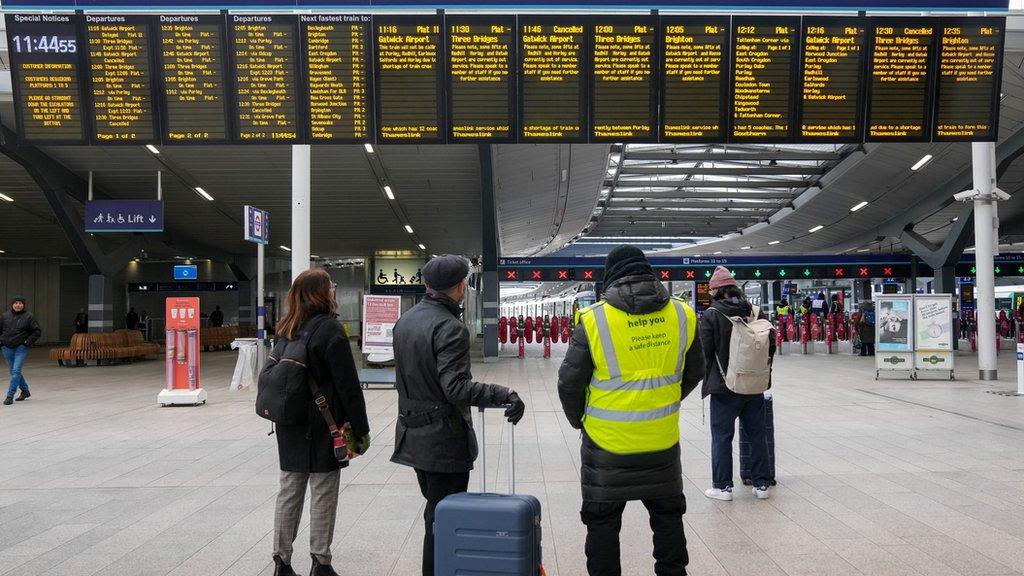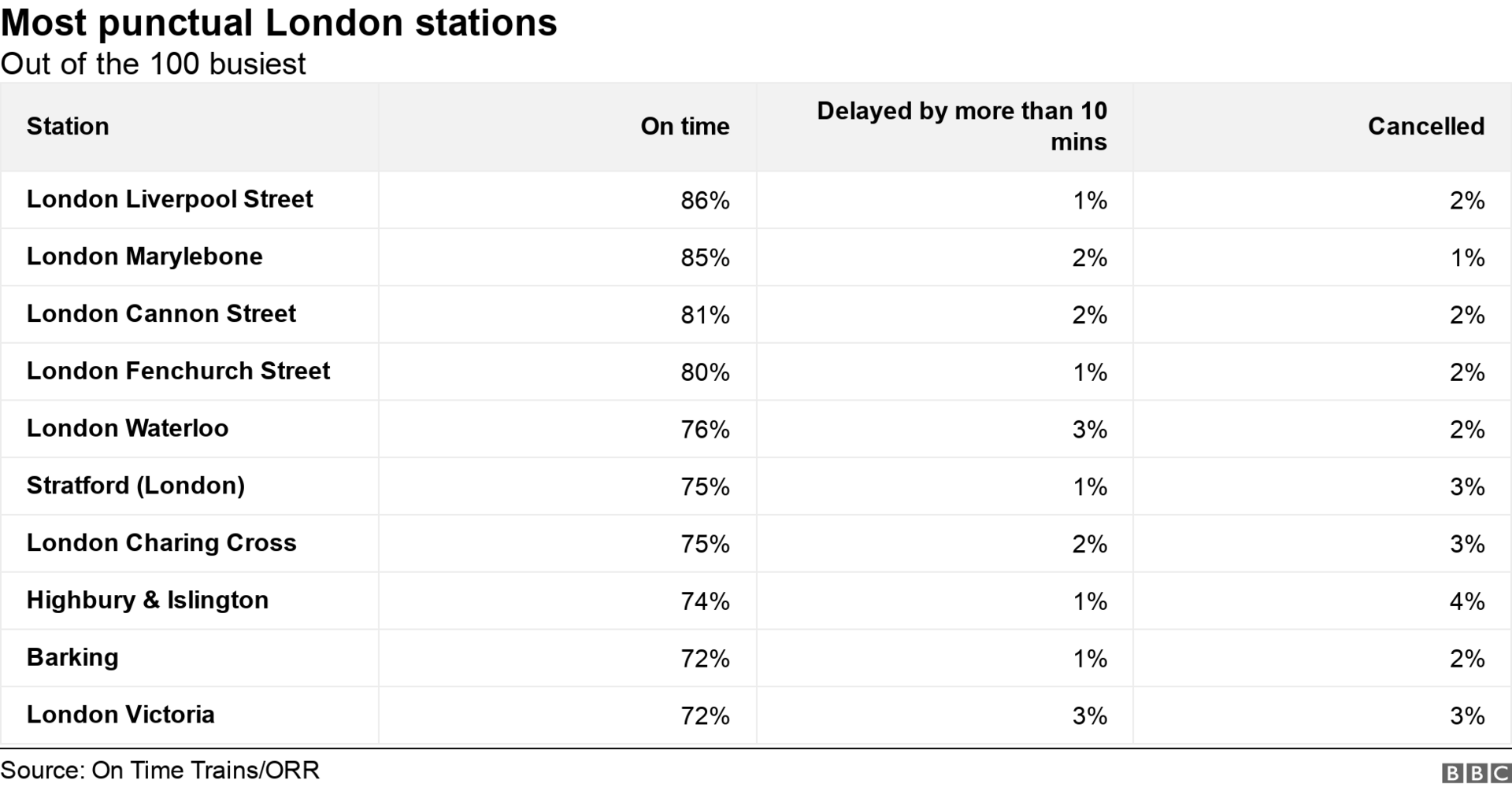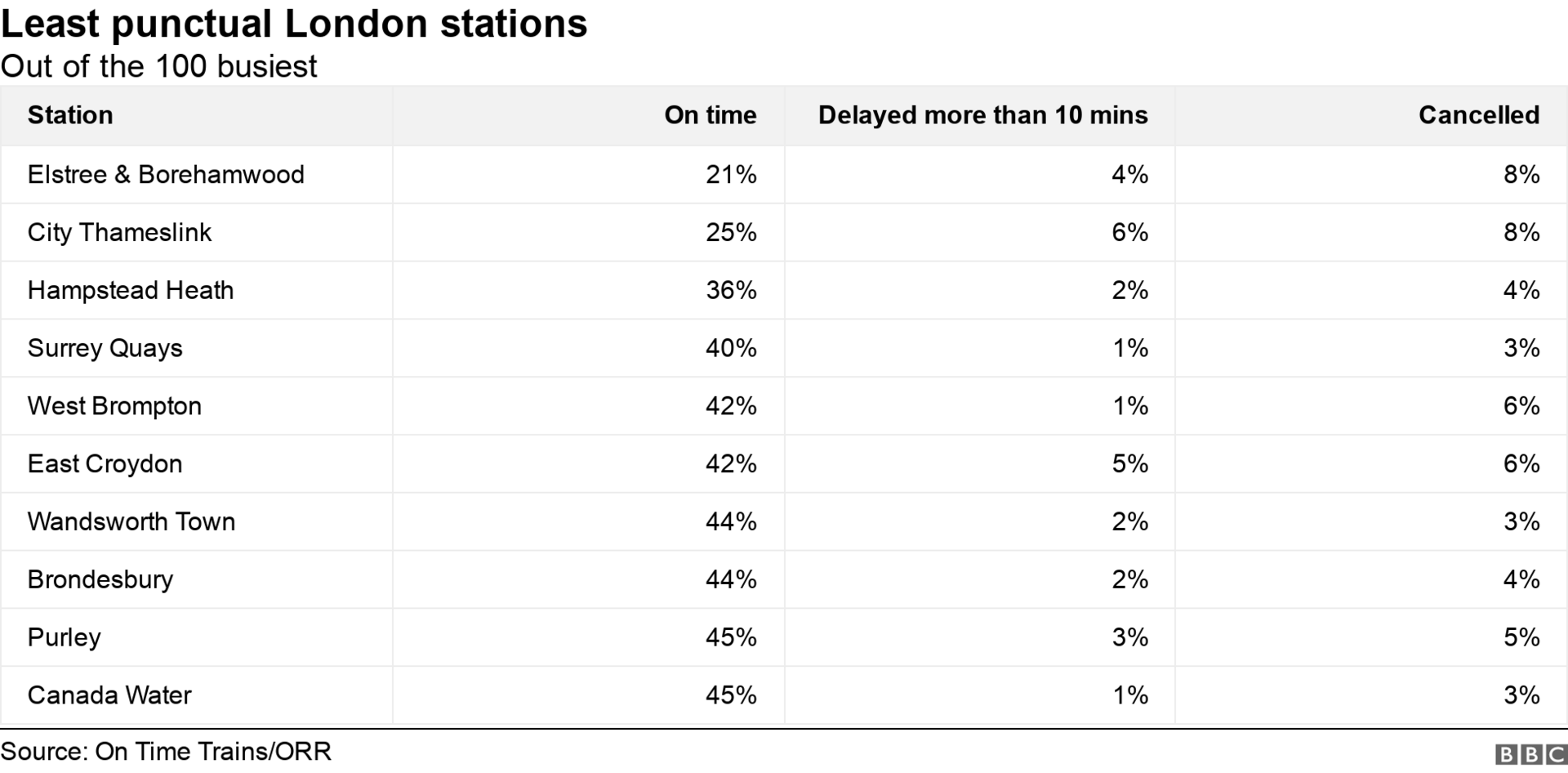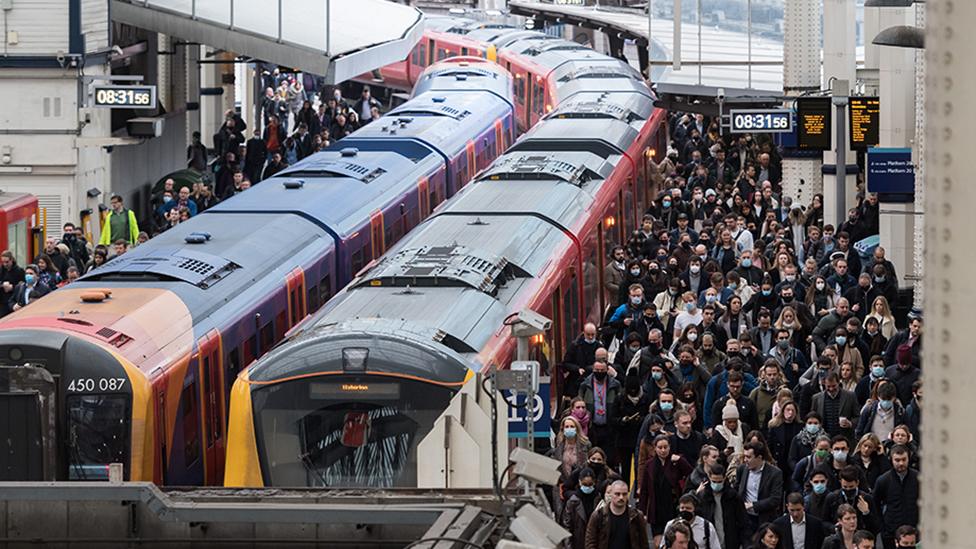Two of every five London trains disrupted in 2022
- Published

In 2022, 40% of scheduled rail and Underground services in London were either cancelled or delayed, analysis has revealed.
Usage has steadily crept up since the pandemic - but station performance is slowly slipping.
Proportionately, stations in north-west London saw the most trains cancelled in the capital.
Transport for London said it tried to minimise delays but circumstances were often outside of its control.
On the Tube alone, there are up to five million passenger journeys a day - at peak times, TfL said there were more than 543 Underground trains whizzing around the capital.
In 2022, for the whole city, there were nearly 25 million scheduled rail and Tube stops in total (not including the Elizabeth line).
These were on services departing from London's some 300 stations - nine million of which were delayed or cancelled altogether, according to figures released by the Office for Road and Rail.
At the capital's 15 busiest stations, just under a third of all services were either delayed or cancelled.
Your device may not support this visualisation
At the UK busiest station, Waterloo, 76% of trains arrived on time; Victoria had 72% arrive on time, London Bridge had 62%, Liverpool Street had 86% and Clapham Junction 60%.
At Birmingham New Street, the busiest station outside London, less than half arrived on time with 52% of services disrupted. The picture at Leeds station was better, with 61% arriving on time.
It was not all unwelcome news in London, however. Overall, 75 of the 100 best-performing busy stations in the UK are in the capital, and London Overground is one of the top three most punctual railway lines, rail tracker website On Time Trains, external found.

Author and rail historian Christian Wolmar says despite a stronger "general feeling of rail malaise" in the north of England, with trains statistically worse performing, often the impact of disruption in the capital was greater.
He said: "London is the most rail-dependent city in the country and, while it has seen the most rail improvements in last 10 years, residents suffer disproportionately when things go wrong."
'Barely working'
Stations in the north west of the city were generally the worst performing with some seeing only about half of services arrive as scheduled.
Queens Park, Kensal Green, Stonebridge Park and Harlesden stations had the highest number of cancellations in the whole of London, with 12%.
Harlesden resident Jamal Elliot said: "The Bakerloo line was barely working at all over Christmas which made it very difficult to get around for me.
"It's made getting getting into central London a nightmare and you end up having to squeeze on to a packed bus if you can find space.
"You don't realise how much you rely on something until you don't have it."

TfL said that major works were taking place on a 20-mile stretch between Euston and Watford Junction.
It added that the renewal of this part of the network should reduce the drainage and flooding problems that can lead to signalling and power failures, the root cause of many train cancellations.
It said that when the works were completed later this year, this should "vastly improve the reliability of service for customers on both the London Overground and the Bakerloo line".
Your device may not support this visualisation
Generally, from April 2020 there were reductions in both planned services and the number of passengers than was the case before the pandemic, the latest report from the Office for Road and Rail said. This led to improvements in punctuality and reliability.
London Waterloo had 388,000 planned rail and Tube stops on services to and from the station in 2022; in 2021 it was 395,00 and in 2019 that number was 477,000.
Overall, passenger numbers are now back up to 80% of the observed usage three years ago but, as rail users return, performance has slipped at many stations.
London Bridge has seen the number of its on-time trains decrease by 10% since 2020, London Victoria by 6%, Waterloo has stayed the same while Liverpool Street has seen an improvement, of 3%.
Geoff Hobbs, Transport for London's director of public transport planning, said: "At times things can go wrong and services may need to be cancelled or delayed. We are always looking at ways to minimise these incidents whenever we can.
"We have strict performance targets that incentivise the operator, Arriva Rail London, to run punctual services with minimal cancellations and to work closely with Network Rail to ensure any track, signalling and infrastructure problems are rectified promptly to minimise delays for our customers."
The BBC approached Network Rail for comment.

Follow BBC London on Facebook, external, Twitter , externaland Instagram, external. Send your story ideas to hellobbclondon@bbc.co.uk, external
- Published24 November 2022

- Published30 December 2022
- Published9 May 2024
